Dong Thap - the lowland of the Mekong Delta has long been known for the image of immense lotus fields, closely associated with the life, culture and people here. Lotus is grown throughout the fields, interspersed in residential areas, creating the characteristic color and fragrance of the land "Thap Muoi with the most beautiful lotus". The first Dong Thap Lotus Festival was held from May 19 to 21, 2022, contributing to honoring the value of the local symbolic tree species.
Dong Thap lotus products with geographical indication protection include fresh lotus seeds (silk lotus), fresh lotus flowers, fresh lotus roots and fresh lotus leaves.
Fresh lotus seeds have dark brown tips, large size, diameter from 1.13 - 1.28 cm, length from 1.55 - 1.73 cm; lotus flowers have diameter from 22.9 - 24 cm.
Dong Thap lotus seeds and lotus roots are processed into many traditional dishes, each with its own unique flavor.

Quality indicators show that fresh lotus seeds have water content from 53.4 - 62.6%, starch from 17.4 - 18.2%, total sugar from 5.95 - 6.98%, fiber from 0.88 - 1.26%, soluble calcium from 317 - 460 mg/kg, potassium from 1.40 - 1.92%. Fresh lotus root has starch from 9.54 - 9.92%, total sugar from 7.20 - 7.54%, fiber from 0.48 - 0.82%, soluble calcium from 193 - 284 mg/kg; lotus leaves have fiber content from 2.31 - 5.27%.
The value and reputation of Dong Thap lotus are formed from the combination of favorable natural conditions and the long-standing cultivation experience of local people. Lotus grows in a temperate climate all year round, with little fluctuation in temperature and is not affected by harsh weather. This factor helps the nutrients in the lotus tubers, seeds and leaves to be of high quality, different from many other growing regions.
Lotus growing soil in Dong Thap is rich in humus, with high total phosphorus (P₂O₅) and potassium (K₂O) content, creating favorable conditions for lotus plants to grow healthily, producing large flowers and seeds, with high levels of soluble potassium and calcium. On the contrary, due to the abundant nitrogen content in the soil, the fiber content of Dong Thap lotus leaves is lower, creating unique biological structure characteristics.
Traditional cultivation experience also contributes significantly to the quality of Dong Thap lotus. Lotus growers often replant after each harvest, using the pink-green mirror lotus variety, which helps improve the natural degradation phenomenon and maintain stable seed and tuber quality. At the same time, the practice of applying lime to treat alum, neutralize acidity and limit fungal diseases not only improves the soil but also supplements calcium and magnesium for crops, helping to increase the nutritional value of lotus.
Lotus seeds are harvested on the 23rd day after the flowers have faded, the time is specifically recorded in the cultivation diary to ensure uniform ripeness and quality. Dong Thap lotus can be harvested all year round, providing a stable supply to the market.
The harmonious combination of natural elements, cultivation techniques and growers' experience has created the Dong Thap lotus brand - a typical product with the identity of the Mekong Delta, which continues to be affirmed and protected through geographical indications.
Source: https://mst.gov.vn/bao-ho-chi-dan-dia-ly-dong-thap-cho-san-pham-sen-197251011215632367.htm


![[Photo] General Secretary attends the parade to celebrate the 80th anniversary of the founding of the Korean Workers' Party](https://vphoto.vietnam.vn/thumb/1200x675/vietnam/resource/IMAGE/2025/10/11/1760150039564_vna-potal-tong-bi-thu-du-le-duyet-binh-ky-niem-80-nam-thanh-lap-dang-lao-dong-trieu-tien-8331994-jpg.webp)

![[Photo] Opening of the World Cultural Festival in Hanoi](https://vphoto.vietnam.vn/thumb/1200x675/vietnam/resource/IMAGE/2025/10/10/1760113426728_ndo_br_lehoi-khaimac-jpg.webp)

![[Photo] Discover unique experiences at the first World Cultural Festival](https://vphoto.vietnam.vn/thumb/1200x675/vietnam/resource/IMAGE/2025/10/11/1760198064937_le-hoi-van-hoa-4199-3623-jpg.webp)











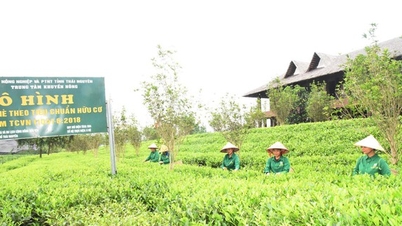
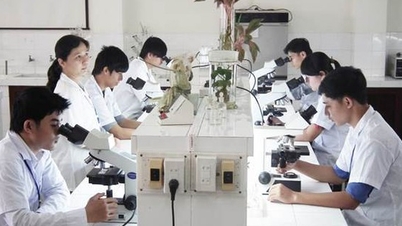




![[Photo] Ho Chi Minh City is brilliant with flags and flowers on the eve of the 1st Party Congress, term 2025-2030](https://vphoto.vietnam.vn/thumb/1200x675/vietnam/resource/IMAGE/2025/10/10/1760102923219_ndo_br_thiet-ke-chua-co-ten-43-png.webp)
































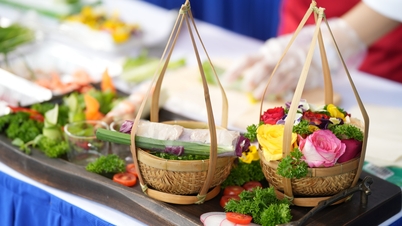










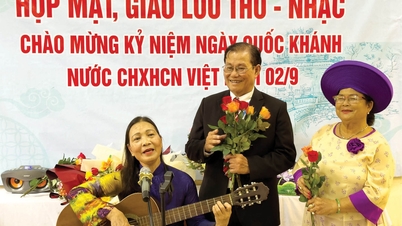


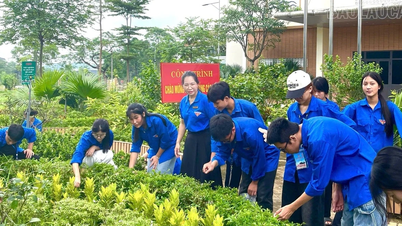
















Comment (0)